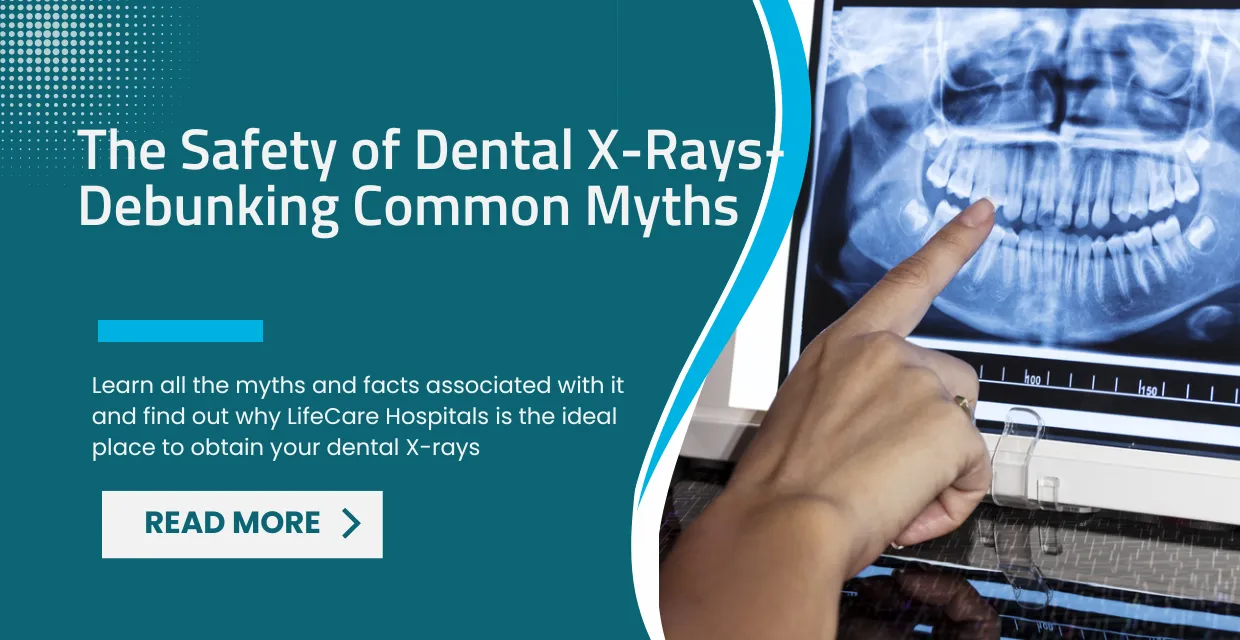Dental X-rays are an essential part of modern dentistry, providing valuable diagnostic information that helps dentists identify and treat various oral health conditions. They allow dentists to see beyond what is visible during a routine dental examination, providing insights into the health of teeth, gums, and underlying bone structure. However, concerns and misconceptions regarding the safety of dental X-rays have raised questions among patients.
Myth 1: Dental X-rays Pose Significant Radiation Risk
Radiation Exposure from Dental X-Rays
One of the main concerns surrounding dental X-rays is the potential radiation exposure. It is important to understand that dental X-rays emit low levels of radiation, especially with modern imaging techniques. The amount of radiation received during a dental X-ray is significantly lower than other medical imaging procedures, such as CT scans or chest X-rays. With advancements in technology, the radiation dose has been greatly reduced, making dental X-rays even safer.
Myth 2: Lack of Safety Measures during Dental X-Rays
Safety Measures for Minimizing Radiation Exposure
Dental practices prioritize patient safety by implementing various safety measures during dental X-rays. One such measure is the use of lead aprons and thyroid collars. These protective devices are designed to shield sensitive areas of the body, such as the reproductive organs and thyroid gland, from radiation. By wearing lead aprons and thyroid collars, patients can further reduce any potential risks associated with dental X-rays.
In addition to lead aprons and thyroid collars, the introduction of digital X-rays has significantly enhanced safety in dental imaging. Digital X-ray systems require less radiation to produce high-quality images compared to traditional film X-rays. Furthermore, digital X-rays offer immediate image viewing, easy storage, and the ability to enhance and manipulate images for a more accurate diagnosis. LifeCare Hospitals, committed to patient safety, embraces the use of digital X-rays to provide the best possible care.
Myth 3: Excessive Frequency of Dental X-Rays
Frequency of Dental X-Rays Based on Individual Needs
Another concern is the perceived excessive frequency of dental X-rays. The frequency of dental X-rays depends on an individual's oral health condition and risk factors. For most adults, dental X-rays are typically recommended every 1 to 2 years. However, patients with a history of dental issues or those at a higher risk of dental problems may require more frequent X-rays. Dentists assess each patient's unique needs and develop a personalized X-ray schedule to ensure proper dental care while minimizing radiation exposure.
Special Considerations: Pregnancy and Children
Pregnancy and Dental X-Rays
Pregnant women often express concerns about the safety of dental X-rays. While the radiation dose from dental X-rays is extremely low and unlikely to cause harm, dental X-rays are generally postponed during pregnancy unless it is an emergency situation. Dentists prioritize the safety of both the mother and the baby and take necessary precautions to minimize any potential risks.
Children and Dental X-Rays: Ensuring Safety and Proper Care
Children may require dental X-rays more frequently than adults due to their developing teeth and potential orthodontic needs. Similar to adults, the radiation dose from dental X-rays for children is minimal. Dentists use pediatric-sized X-ray equipment and employ child-friendly techniques to ensure accurate imaging while prioritizing their safety. Lead aprons and thyroid collars are also utilized to protect children during the procedure.
Dental X-Rays: A Tool for Early Detection and Effective Treatment
Despite the concerns, it is important to recognize the significant benefits of dental X-rays. They allow dentists to detect dental problems at an early stage, leading to timely intervention and effective treatment. By identifying issues such as cavities, bone infections, impacted teeth, and gum diseases, dental X-rays enable dentists to develop appropriate treatment plans and ensure optimal oral health.
The Safety of Dental X-Rays and the Commitment of LifeCare Hospitals
In conclusion, dental X-rays are a safe and invaluable tool in modern dentistry. Misconceptions surrounding the safety of dental X-rays should not deter individuals from receiving necessary dental care. LifeCare Hospitals, dedicated to providing comprehensive healthcare services, emphasizes patient safety and recognizes the importance of dental X-rays in achieving and maintaining healthy smiles.



